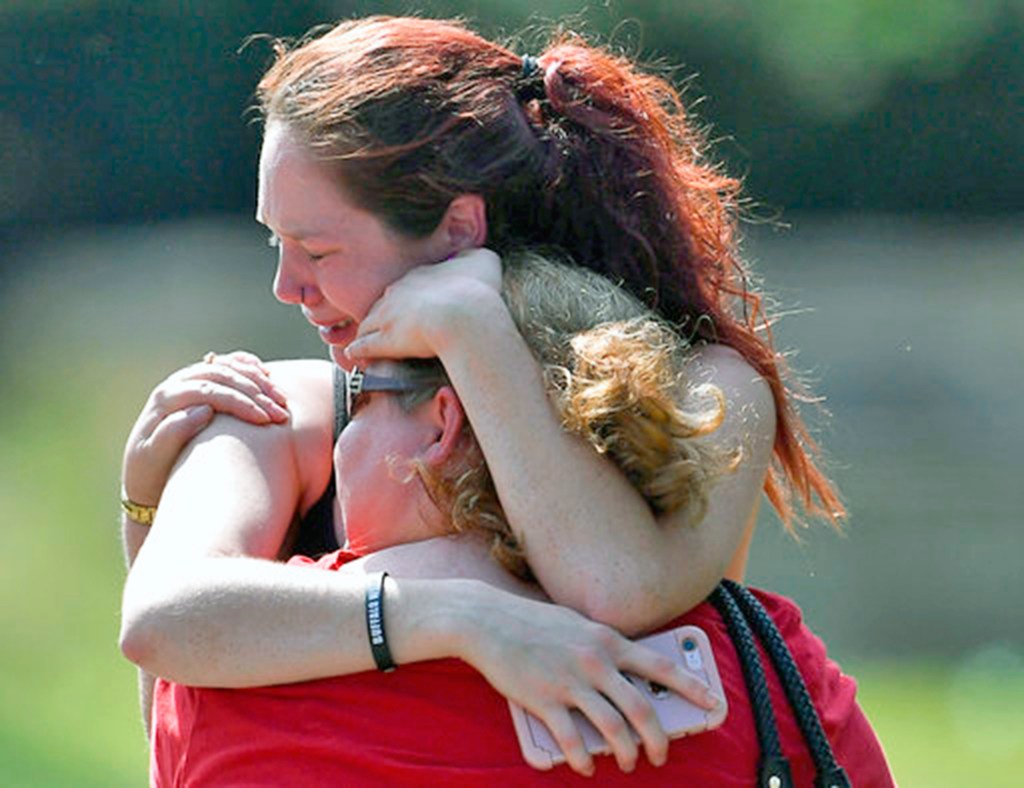Recent church shooting prompts local churches to discuss security
Published 6:45 am Tuesday, September 26, 2017

- Kaitlyn Adams, a member of the Burnette Chapel Church of Christ, hugs another church member after a deadly shooting at the church on Sunday, Sept. 24, in Antioch, Tennessee.
On Sunday, Sept. 24, a masked gunman killed a 39-year-old mother in the parking lot of her Nashville-area church, then entered the building and shot six more members of Burnette Chapel Church of Christ in Antioch, Tennessee, including the church’s minister and his wife.
Church usher Caleb Engle confronted the shooter, Emanuel Kidega Samson, who accidentally shot himself in the left side of his chest during the struggle. Engle, 22, used a handgun he had retrieved from his vehicle to hold Samson until police arrived.
Trending
The proximity of the recent shooting has prompted Limestone County church leaders to evaluate their security policies and how to best protect their parishioners.
Larger churches like Lindsay Lane Baptist already have a comprehensive policy in place that would allow them to deal with an active shooter situation.
The Rev. Dusty McLemore says that they put together a security ministry team comprised of a dozen church members, many with police, military and security backgrounds in 2007. The church regularly sends members of the security team to an outside training corporation that specializes in hand-to-hand combat, firearms training and how to recognize unusual or suspicious behavior.
“A couple of our security members are armed, because you just never know what will happen,” McLemore said. “But we do not recommend our members bring concealed weapons to church.”
“Our concern is that someone who is untrained may not know how to handle a situation like the church shooting in Antioch,” he added.
State Rep. Bill Holtzclaw said the law is silent about whether or not an individual with a concealed carry license can bring a concealed weapon into a house of worship. Churches are considered private property and therefore, each individual church makes their own concealed-carry policy.
Trending
“I am in full support of the Second Amendment, but I am also an advocate of those who carry to be well-trained and to be familiar with the law,” Holtzclaw said. “And if they chose to engage that they be wary of collateral damage, which comes from being well-trained.”
“In other words, you don’t want to try to shoot an intruder and hit a choir member instead,” he added.
Lindsay Lane also has an extensive surveillance system that monitors both the main and east campus buildings, inside and out.
Holtzclaw said that churches like Lindsay Lane that already have a security plan in place are “ahead of the game” and last weekend’s “horrific incident” should prompt other area churches to discuss what sort of measures they can take to keep their members safe.
David Cox, a minister at Market Street Church of Christ, said that the shooting in Antioch made him take a good look at their security policy.
“Aside from security cameras, our ushers meet everyone who comes into the building, and they watch for odd behavior,” Cox said. “I also expect that some of our members are carrying concealed weapons. This is Alabama, after all.”
Market Street does not have an official policy that forbids church members from carrying concealed weapons into the church building.
The church keeps all entrances locked during services except for the ones manned by ushers.
“We hate to lock our doors because we’re a church, but it’s a simple thing that helps us keep out someone who might have evil intentions,” he added.





